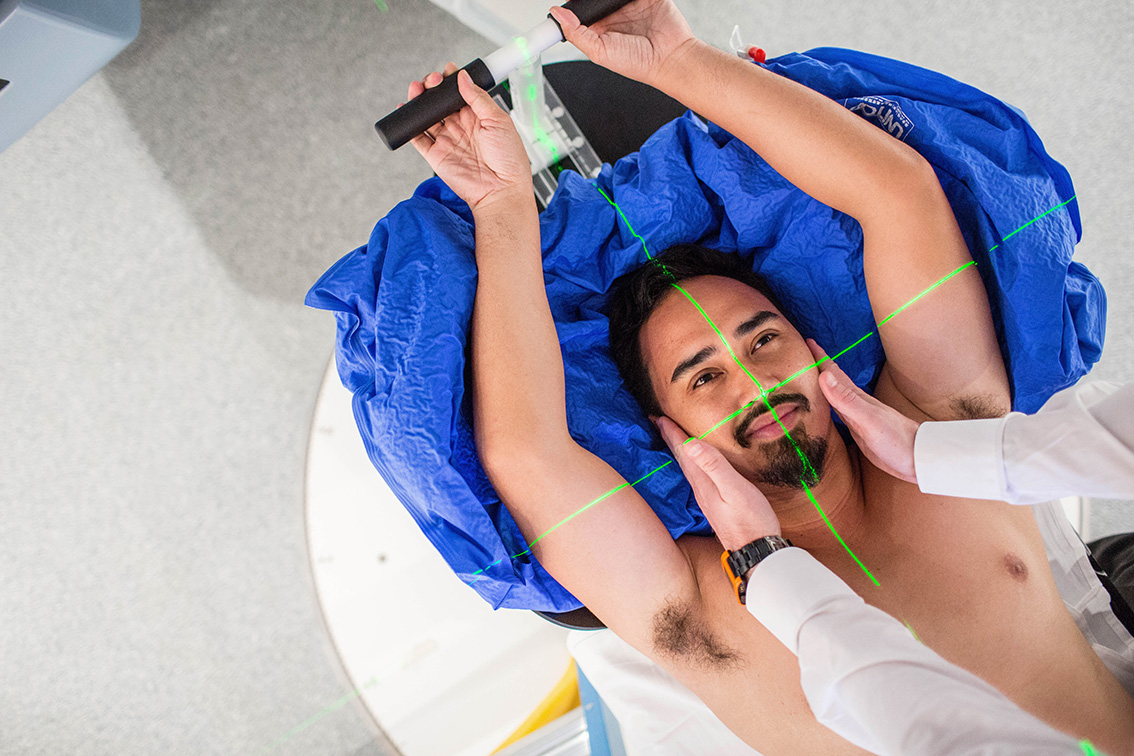Radiation therapy planning is the first step in creating your treatment plan. At this appointment we review your personal medical history to determine the most appropriate way to treat you. This appointment may take two to four hours.
The first part takes approximately 40 minutes. A radiation therapist will collect you from the waiting room, and may ask you to change into a gown before they take you into the simulation room.
Once you are changed, your radiation therapist will talk to you about the simulation session and answer any questions. During this session your radiation therapy treatment position will be identified.
Your treatment position is often determined using a CT scanner, which identifies the cancer and surrounding structures. This enables our team to localise the areas you are having treated. Extra equipment may be required to identify a specific position. As this position needs to be accurately reproduced throughout your treatment you may require very small permanent and/or non-permanent marks to assist with this process. Any marks needed for your treatment will be fully explained during your planning session.
Your radiation therapist or nurse will discuss how to care for your skin during radiation therapy and suggest appropriate clothing to wear during treatment. They will also advise any specific requirements needed for your treatment, for example, whether you must have a full or empty bladder.
